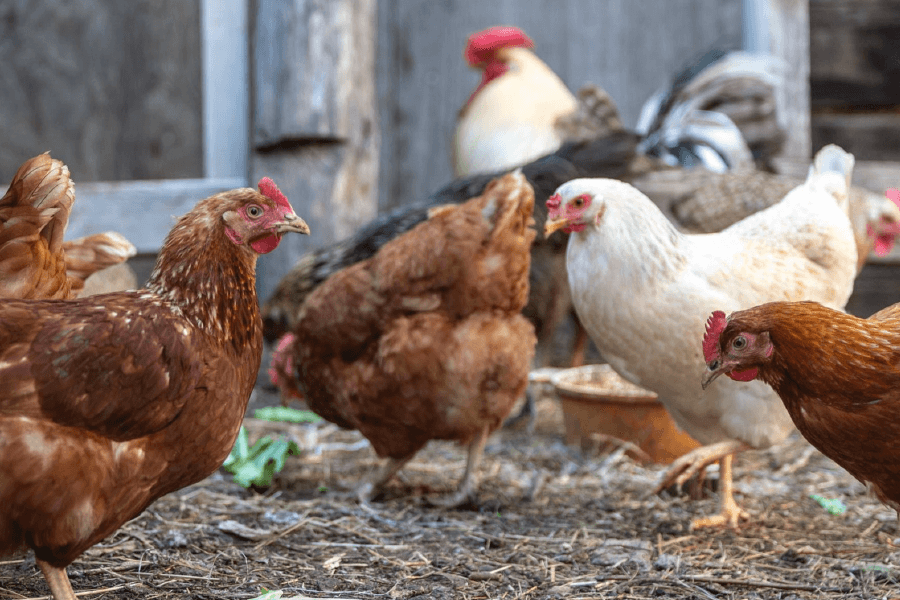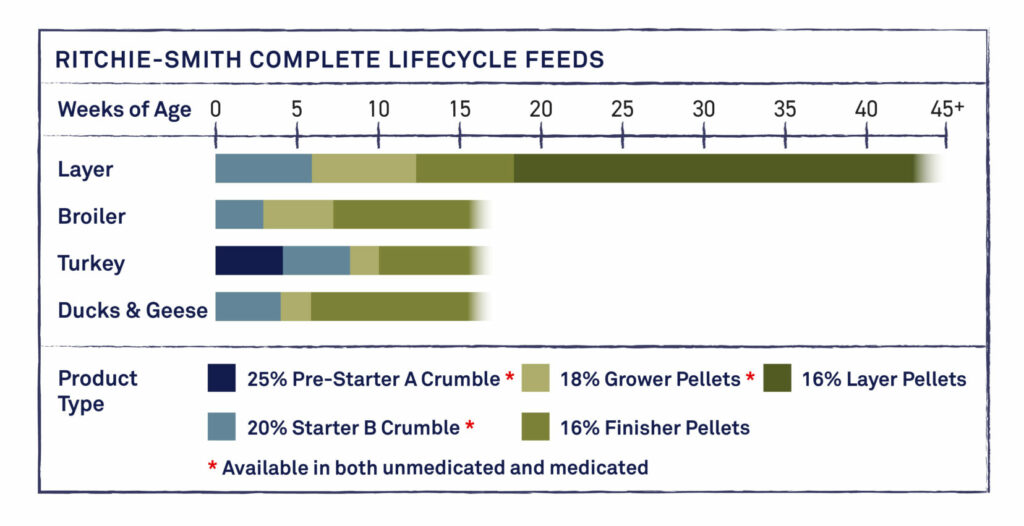
Article
Medicating Your Flock
While some small flocks owners can be hesitant to medicate, it's important to understand the risks and make an educated decision. If your chickens or turkeys have access to the ground, they are at risk of contracting Coccidiosis.
While some small flocks owners can be hesitant to medicate, it’s important to understand the risks and make an educated decision. If your chickens or turkeys have access to the ground, they are at risk of contracting Coccidiosis.
Coccidiosis (Cocci) is a parasitic infection that can affect any free run or free range flock, especially younger birds. These parasites are abundant on the ground (indoors and outdoors) and once consumed can reproduce rapidly in the bird’s digestive tract. When left untreated, Cocci can cause permanent damage to the gut lining which reduces your bird’s ability to absorb the much needed nutrients in their food. In many cases an untreated outbreak can be fatal.
Recognizing Coccidiosis In Your Flock
The Most Common Cocci Symptoms:
- Diarrhea
- Blood and/or mucous in feces
- Lethargy
- Loss of appetite
- Weight loss in older birds
- Lack of growth in young birds
- Pale combs and wattles
Symptoms can come on gradually or rapidly, and can result in death, especially in chicks and pullets.
Preventing Coccidiosis
We offer a medicated version for each of our 25% Pre-Starter, 20% Starter and 18% Grower Feeds. Use the chart below to determine the correct feed for your flock based on their species and age.
Our medicated feeds contain amprolium, an anticoccidial for chickens and turkeys. Amprolium limits the parasites’ ability to uptake and multiply in the gut. Amprolium is an organic compound similar to thiamine and is not an antibiotic. Amprolium is not 100% effective at preventing the cocci from growing, so over a period of approximately 6 weeks the flock will develop immunity to cocci and will no longer need medicated feed.
While it is not known to be harmful, amprolium is not recommended for use in ducks and geese as Coccidiosis does not commonly affect these species.


Have a Specific Question?
Our dedicated team of expert nutritionists are here to help. Send us your questions.
Ask Our Experts




 Premium Poultry Feed
Premium Poultry Feed
 Premium Equine Feed
Premium Equine Feed
